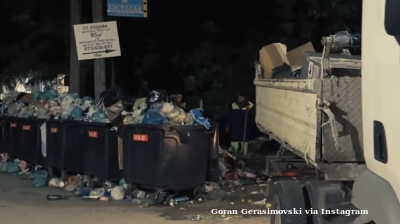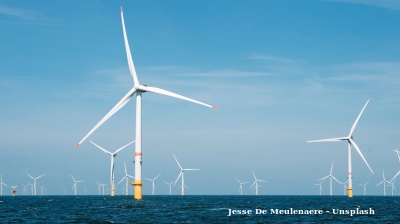India's renewable energy capacity is predominantly concentrated in just seven states in the south and west of the country, Construction World reports.
India is investing heavily into renewables as part of its green transition strategy to wean itself off its dependence on coal to power the country’s fast economic growth. While India still has plenty of emissions allowance in its carbon budget, it remains one of the world’s biggest emitters of CO₂ and needs more power to fuel growth.
India’s renewable generating resources are concentrated in Andhra Pradesh, Gujarat, Karnataka, Maharashtra, Rajasthan, Tamil Nadu, and Telangana, which together account for over 80% of the country's total installed capacity, Construction World reports.
The concentration has raised some eyebrows as critics worry about the sustainability and equity of India's energy transition strategy.
At a conference organised by the environmental think tank International Forum for Environment, Sustainability, and Technology (iFOREST), which brought together national policymakers, state agencies, industry leaders, and experts, the discussion focused on addressing the growing regional disparity in renewable energy development and discussed strategies for achieving a more balanced energy transition across the country.
"As India advances towards its ambitious renewable energy goals, it's vital that all states participate equally," said Chandra Bhushan, CEO and President of iFOREST, Construction World reports. "This approach will not only prevent excessive investments in grid infrastructure but also promote equitable green growth, generate jobs, and enhance energy security."
Bhushan stressed the need for significant reforms in policies such as the Inter-State Transmission System (ISTS) charges waiver and the development of new policies to encourage balanced green growth across all regions.
Bhupinder Singh Bhalla, Secretary of the Ministry of New and Renewable Energy (MNRE), echoed these sentiments in his address as the chief guest. "The required renewable capacity growth going forward must be spread equitably across the country," he said. "The scheduled phase-out of the ISTS waiver will support this, but states also need to be ready for it by providing ease of business, land, and transmission for developers."
The new government plans to upgrade India’s energy transition policies and accelerate the move to renewables. Stakeholders called for less land-intensive technologies such as floating solar, rooftop solar, and agri-photovoltaics to ensure ecological security to be rolled out.
bneGREEN

North Macedonia's Skopje tackles mounting waste and rodent crisis
Locals say the problems in Skopje's Centar municipality worsened during the local election period when political campaigning took precedence over maintenance.

Malaysia–Vietnam offshore wind project to deliver 2,000 MW by 2034, strengthening regional green energy links
Malaysia’s upcoming offshore wind project connecting Vietnam to Peninsular Malaysia is expected to generate up to 2,000 megawatts (MW) of clean energy by 2034, marking a major step in the nation’s renewable energy expansion

EBRD invests €16.8mn in Croatia’s first large-scale battery storage and virtual power plant
Development bank to take its first equity stake in a standalone merchant storage project.

Kyrgyzstan says neighbours “upset” by country’s lack of water
“This year we were supposed to overcome shortages, but instead, they have intensified,” deputy head of cabinet tells Uzbekistan and Kazakhstan.


.jpg)

